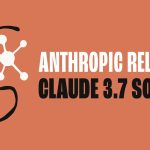
Landmark Deal Marks Turning Point in AI Content Rights Battle
The artificial intelligence company Anthropic has agreed to pay authors $3,000 per book in a landmark settlement over pirated chatbot training material, marking what legal experts call the largest copyright recovery in U.S. history. Anthropic told a San Francisco federal judge on Friday that it has agreed to pay $1.5 billion to settle a class-action lawsuit from a group of authors who accused the artificial intelligence company of using their books to train its AI chatbot Claude without permission.
Breaking Down the Settlement Details
Record-Breaking Compensation Structure
The proposed settlement amounts to a gross recovery of $3,000 per work, covering approximately 500,000 books involved in the legal action. This compensation rate significantly exceeds the minimum statutory damages typically awarded in copyright cases, setting a new precedent for AI-related intellectual property disputes.
The settlement structure addresses several key components:
- Direct payments to affected authors and publishers
- Destruction of pirated digital copies
- Preservation of legally purchased content rights
- Implementation of new training data protocols
Legal Victory with Mixed Results
The case presented complex legal questions about fair use in the age of artificial intelligence. While courts found that certain aspects of AI training constitute transformative fair use, they drew clear lines regarding the acquisition and storage of copyrighted materials.
The judge’s order asserts that Anthropic pirated more than 7 million copies of books, highlighting the massive scale of content acquisition that fueled this legal challenge. However, Anthropic said in the settlement that the specific digital copies of books covered by the agreement were not used in the training of its commercially released AI models.
Industry Implications and Future Impact
Setting New Standards for AI Development
The settlement marks a turning point in the clash between AI companies and content owners, establishing important precedents for how technology companies approach training data acquisition. This agreement sends clear signals about the financial consequences of unauthorized content use in AI development.
The Authors Guild has positioned this settlement as a warning to the broader technology sector. The deal demonstrates that even the most sophisticated AI companies cannot simply acquire copyrighted materials without facing substantial legal and financial consequences.
Competitive Landscape Shifts
This settlement occurs as Anthropic continues its aggressive expansion in the competitive AI marketplace. The company recently secured significant funding rounds, positioning itself as a major challenger to established players like OpenAI, Google, and Microsoft in the generative AI space.
The financial impact of this settlement, while substantial, represents a fraction of Anthropic’s current valuation and recent funding achievements. However, it establishes important operational constraints that may influence how all AI companies approach content acquisition moving forward.
Broader Legal Trends in AI Copyright
Similar Cases Across the Industry
Anthropic’s settlement comes amid a wave of copyright-related legal challenges facing major technology companies. Apple recently faced similar allegations regarding its Apple Intelligence features, while Meta and other tech giants continue defending their AI training practices in various jurisdictions.
These parallel legal battles suggest that copyright issues in AI training represent a fundamental challenge requiring industry-wide solutions rather than company-specific approaches.
Regulatory and Policy Implications
The settlement arrives as policymakers worldwide grapple with appropriate frameworks for AI development and intellectual property protection. This case provides concrete data points that may influence future legislation and regulatory approaches to AI training data requirements.
Next Steps and Timeline
Judge Alsup granted the motion for a hearing on Monday, September 8th, where the court will consider formal approval of the settlement terms. This judicial review will determine whether the proposed compensation structure adequately addresses the scope of alleged copyright violations.
The settlement requires final court approval before payments begin, with the timeline for distribution still being finalized. Affected authors and publishers will need to demonstrate their eligibility for compensation through the established claims process.
This historic settlement represents a watershed moment in the intersection of artificial intelligence and intellectual property law. By establishing clear financial consequences for unauthorized content use, the agreement creates new standards that will likely influence AI development practices across the technology industry.
The $1.5 billion compensation package demonstrates that content creators can successfully challenge even the most well-funded technology companies when their intellectual property rights are violated. As AI continues evolving rapidly, this case provides crucial guidance for balancing innovation with creator rights in the digital age.
For authors and publishers, this settlement offers both compensation for past violations and hope for stronger protections in future AI development projects. The precedent established here will likely shape negotiations and legal strategies as the AI industry continues its explosive growth.
Related posts:
 Sony Music Issues Stern Warning to Tech Companies Over Unauthorized AI Training
Sony Music Issues Stern Warning to Tech Companies Over Unauthorized AI Training
 Claude’s Reasoning Revolution: Everything You Need to Know About Anthropic’s Game-Changing AI Models
Claude’s Reasoning Revolution: Everything You Need to Know About Anthropic’s Game-Changing AI Models
 Former OpenAI Safety Lead Joins Anthropic to Head New AI Superalignment Team
Former OpenAI Safety Lead Joins Anthropic to Head New AI Superalignment Team
 SpaceX’s Starship: Preparing for a Historic Reentry
SpaceX’s Starship: Preparing for a Historic Reentry




Leave a Comment
You must be logged in to post a comment